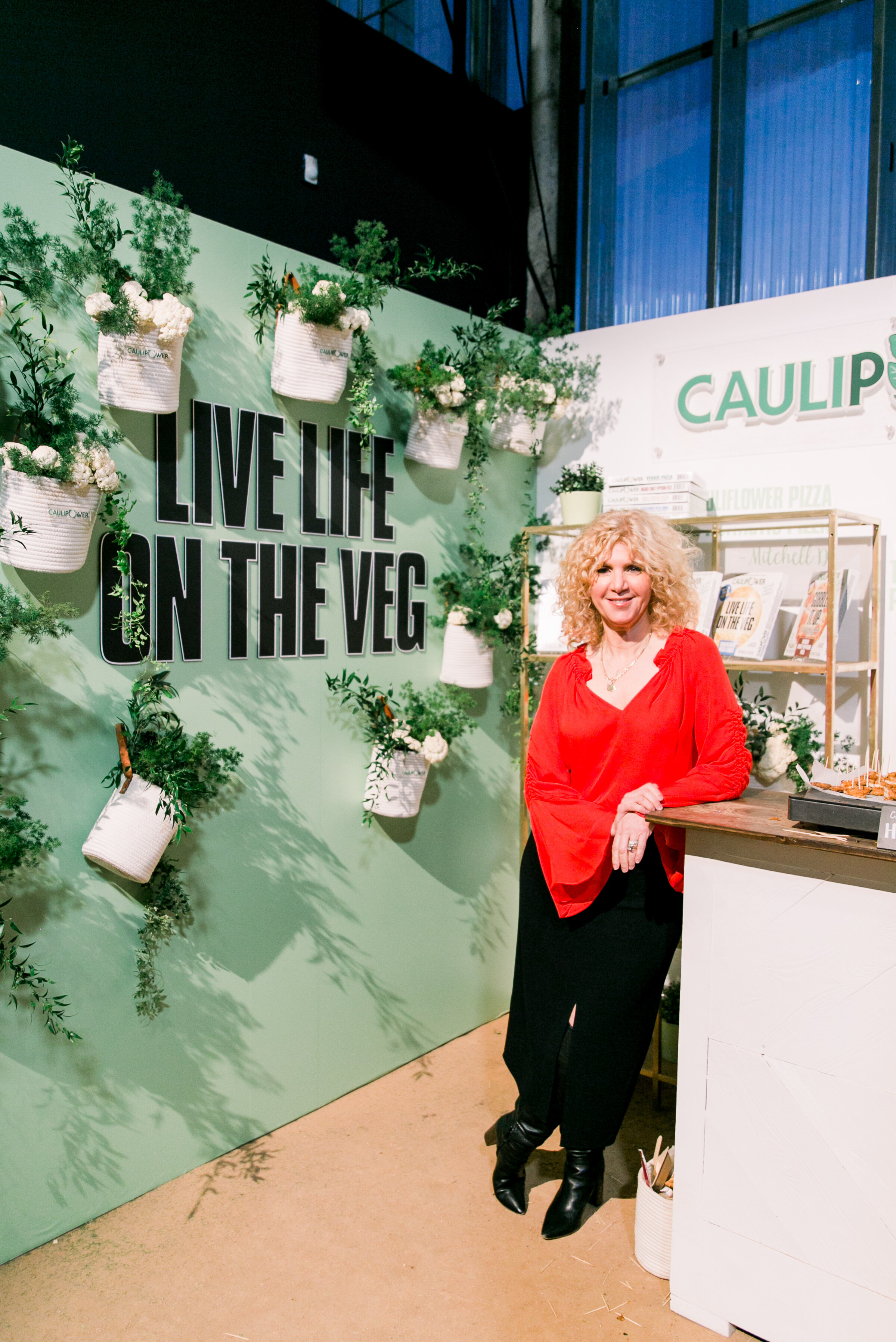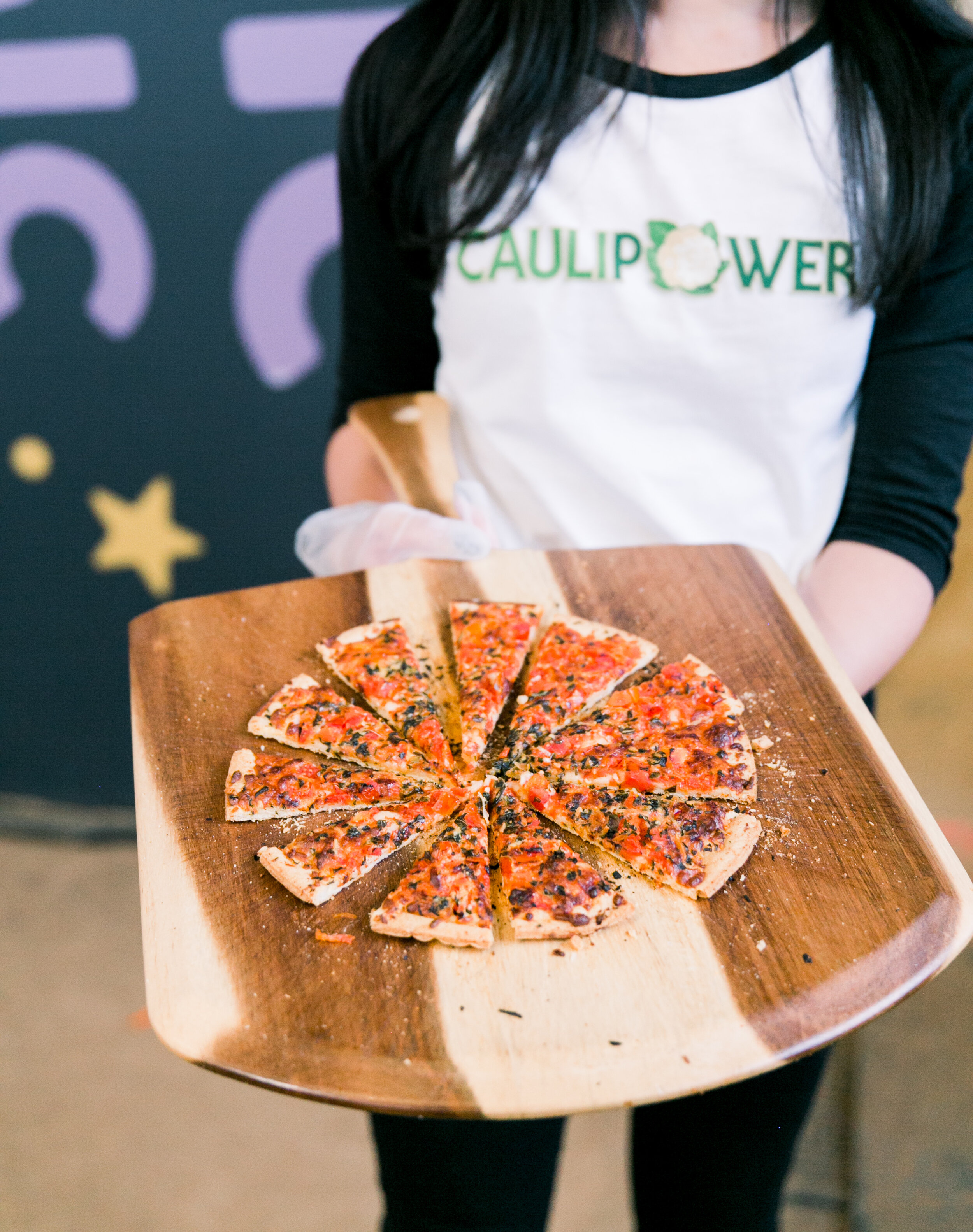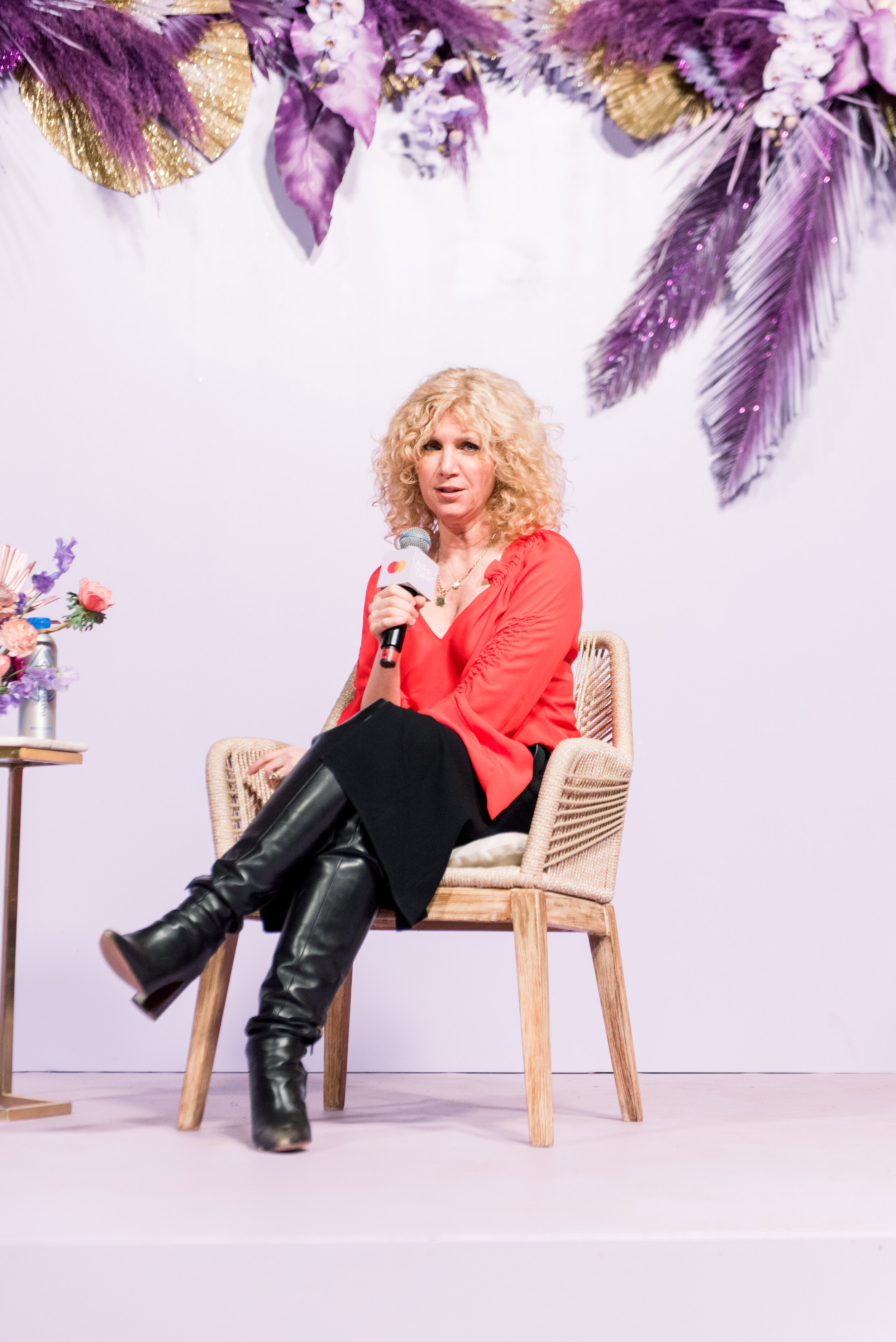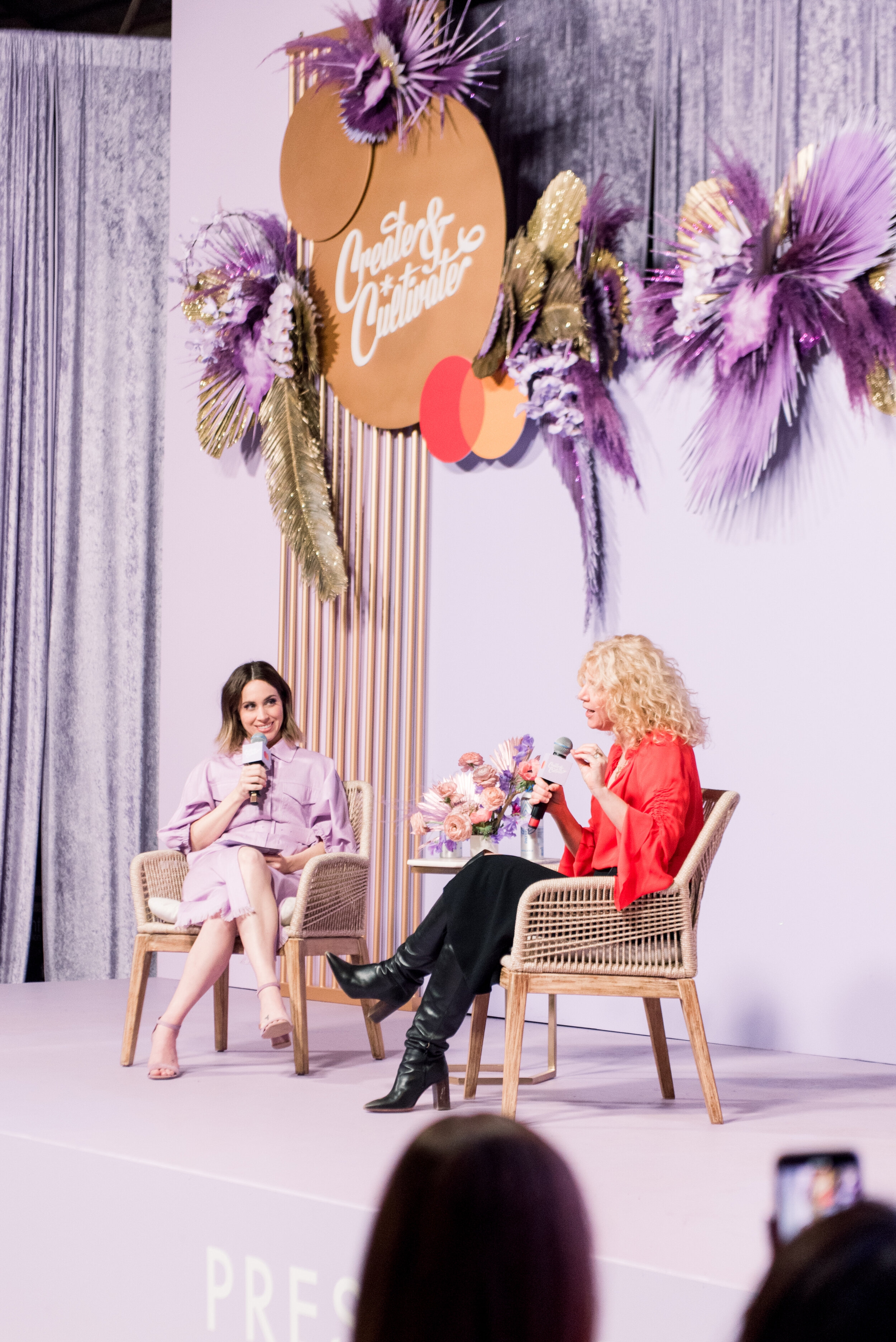"I Maxed Out All of My Credit Cards and Lived Off Savings"—Now She's Built a $100M Company
You asked for more content around business finances, so we’re delivering. Welcome to Money Matters where we give you an inside look at the pocketbooks of CEOs and entrepreneurs. In this series, you’ll learn what successful women in business spend on office spaces and employee salaries, how they knew it was time to hire someone to manage their finances, and their best advice for talking about money.
“I took a risk and bet on myself. That’s the hardest part. If you don’t bet on yourself, who else ever will?”
—Gail Becker, CEO of CAULIPOWER
Money: like religion and politics, it’s off the table but if there’s one thing we need to talk about more, it’s money, especially as women. Why? Because more women than ever before are starting their own businesses and they’re growing at twice the speed. In fact, a new report found that 42% of all firms are female-owned and women started 1,817 businesses a day in the past year. Despite that, women-owned businesses still struggle to get crucial financing so we need to ditch the taboo and open up a public dialogue to better understand how to raise it, manage it, and grow it.
Someone who is boycotting that ban is the founder, and CEO of CAULIPOWER, Gail Becker. Since 2017, Becker has built a $100m company and completely disrupted the food industry to become the #1 better-for-you pizza in the U.S. At our recent LA2020 conference, Becker had some no-filter money advice, especially around the topic of raising it. Having taken on two rounds of investment for CAULIPOWER, she knows each entrepreneur must make the right choice for them. “Just because you can raise more money, doesn’t mean that you should” she told the audience. “It’s not a symbol of how successful you are… or will be.”
Becker also decided against a friends and family round for her startup. “It made me nervous to play with my friends’ and family’s money,” she explained. “I waited as long as I could before seeking outside funding. I used all of my own money initially and maxed out all my credit cards.” There are different ways to fund your business and, ultimately, it needs to come down to what you feel most comfortable with and what your business needs are,” she explained. “I took a risk and bet on myself,“ she said. “That’s the hardest part. If you don’t bet on yourself, who else ever will?”
So, we tapped the powerhouse founder and CEO to share more of her money lessons, mistakes she’s made, and advice for small business owners. Read on and grab a pen, you’ll want to write these down.
On bootstrapping the company in the beginning…
When I first started CAULIPOWER, my goal actually wasn’t to make money. My dad, who was an entrepreneur and a Holocaust survivor, had recently passed away, and it made me recognize the fragility of life. I had been working my way up the proverbial ladder of corporate America, and then decided that I really didn’t like the view. I wanted to do something more meaningful with my life and I realized that I needed to make a change. That, along with my frustration in what I was seeing in the freezer aisle, created an ‘aha' moment that inspired me to launch CAULIPOWER.
My dad had left me with a small amount of money, and I knew the best way to honor his memory was to follow in his entrepreneurial footsteps. I knew how hard my father worked for every dollar he made, so I spent each one cautiously. I also put in a fair amount of my own money and lived off my savings. On a personal note, it was an interesting transition for me. I was coming from a comfortable job in corporate America with a comfortable salary, and I was used to a certain lifestyle.
When I started CAULIPOWER, I said goodbye to that life and paid attention to every dollar that I was spending, both personally and for the company. I downgraded my lifestyle significantly, saying goodbye to any shopping (outside of the grocery store) and vacations, and even sold most of my former wardrobe such as purses and shoes online. Even that wasn’t enough to sustain the launch of CAULIPOWER, so I maxed out all of my credit cards and tapped into more of my savings.
While this was the right decision for me, everyone has to choose the route that makes sense for them. For me, this was the only way I could bring my vision to life. I was nervous to take money from friends or family, but that doesn’t mean that’s the wrong choice for others. In hindsight, I have several friends and family who now wish I would have asked. At the time, I just followed my gut and made a choice about how I could make things work without negatively impacting others.
On raising money twice since then…
I raised money for a few reasons. First, the frozen food industry is an extremely cash-intensive business. You have to make the product before you can sell it, and there’s a pretty quick need for money given cash flow. When it comes to raising money, timing is incredibly important. I learned quickly that you should try and build the business as much as possible before you raise money. Why? The smaller your business is, the more of the company you will have to give away when you raise money in exchange for equity. Ideally, it’s best to try and hold off until you’ve made some actual sales.
Having said that, one of the worst things you can do is starve a business from cash. Cash is like fuel. We need it to make our products, to pay for promotions, to hire staff, and to market the brand. The timing of it all is a delicate balance between raising too much money, forcing you to give away more of the company when it is of the least value and starving the business, stunting its growth and first-to-market advantage.
“Just because you can raise more money, doesn’t mean that you should. It’s not a symbol of how successful you are or will be.”
On the most surprising part of the venture capital process…
I was surprised at how personal the process became. It would be easy for someone to interpret reactions as a reflection of the quality of one’s idea. If a VC didn’t want to invest in CAULIPOWER or wanted to wait for more data, I questioned myself. What did that say about my idea? The reverse was also true. When you find a partner that believes in you and is prepared to invest money into your business, it can be an incredible confidence boost. It’s a moment when you finally think, maybe this idea is not so crazy after all?!
One of the biggest mistakes that some people make during the fundraising process, is the instinctual desire to take money from the first person that offers it. You should always try to take ‘“smart” money—money from people who know more about the industry, category, and process of building a company than you do. What’s most important is to take money from people who will work hard for you and your idea.
Another part of the fundraising process that surprised me was how similar it was to, well, dating?! Remember, they’re not just interviewing you; you’re interviewing them too! You have to ask yourself ‘who do you want to be in the trenches with you for the long-term? Who will be there for you when the times and decisions get tough—because they will! Who shares your vision?
On the most common mistakes people make when raising money…
Raising too much. Just because you can, doesn’t mean you should. The ability to raise large amounts is not an indicator of the success of your business, rather it’s an indicator that a lot of people will be counting on you and you better deliver. It’s important to raise what you need, which should be enough to hold you over for a while, but not forever. From there, you can build the company to something bigger, then raise more money when it becomes more valuable. My first round of funding was $2M.
“One of the worst things you can do is starve a business from cash—cash is like fuel. ”
On the three crucial elements, every pitch deck should include…
First, you need to show the potential of the company or the white space. Why is this the right business at this time? What hole are you filling that currently doesn’t exist? Another crucial element is the data. You should try and show as much data as you can, even if you have to buy some of it. Show the real performance of your product if it's currently in stores, or use other competitive data to give a sense of how it might do. If it’s not already in the market, you need to prove why you believe it would do well, and this is best accomplished by definitive proof points. Show them that you have done your homework and that you don’t expect anyone to just take your word for it.
Finally, you need to show your passion. Most investors are not just investing in the business; they’re investing in YOU, the entrepreneur. If you're not passionate—and confident—about your own idea, then it really doesn't matter how good of a business plan you have.
On how much she paid herself in the beginning…
I didn't pay myself in the beginning. I lived off of my savings from about May 2016 to September 2017. Once I got VC funding, they made me take a salary and I’ve had the same one ever since. For comparison purposes, it is less than 1/5th of what I used to make when I worked in the corporate world… but I couldn't be happier.
On her first hire…
My first hire was someone who helped me fill out the deluge of paperwork I was facing from the retailers, brokers, and distributors. I realized all the time I was spending with paperwork was a huge opportunity cost and that my time would be better spent in other areas of the business.
On the first big expense as a business owner…
The first order I placed to make the first product.
On when she hired an accountant…
One of the best things about the economy we live in is that you can hire contractors to help you with just about anything. Thanks to some referrals, Google, and some other people I had met in the industry, I came across an agency that performed CFO duties for-hire for small companies. As soon as I got my first order, I knew I had to hire them.
I strongly believe that the most important thing to know as a first-time entrepreneur is to know what you don’t know and then hire around it. Many entrepreneurs mistakenly believe that they somehow need to know all aspects of their business. Nothing could be further from the truth. Know what you know and then hire experts to fill in the gaps.
“Know what you know and then hire experts to fill in the gaps. ”
On the most important area for business owners to focus their financial energy…
Put it into making the best product or service you possibly can. At the end of the day, you can have everything else figured out, but if you don’t have a product that people want, nothing else matters.
On why women should talk about money and business more…
When I was in my first marriage and at my old job, I’m embarrassed to admit that there was a lot I didn’t know about my own finances. I wasn’t financially illiterate, but I never made it a priority to become informed. When I got divorced, the need to become financially literate hit me in the face. I remember thinking, “I will never do that again.”
On having a financial mentor…
I did have some incredible people in the industry (and outside of it) that I looked up to, asked lots of questions of and with whom I’ve stayed connected. I never really had a financial mentor, but then again that wasn’t the primary reason why I started CAULIPOWER. My initial goal wasn’t to make lots of money; it was simply to help people have access to better options. If that’s why you start your business though, then that’s fantastic and finding a financial mentor might be the right choice for you. Now that I am running a business and am responsible for other people, the financial decisions I take on have tremendous importance.
On the money mistakes she’s made and learned from along the way…
I think it all depends on whether you’re new to your industry or if you have a background in it. If I had any sort of experience in the frozen food space prior to launching CAULIPOWER, I probably could have made some different decisions. Since that wasn’t the case, I placed a lot of trust in other people. I trusted that they knew more than I did and there’s a fair amount of trust that I probably placed blindly. In some cases, that ended up having a high price tag associated with it.
“If you’re not passionate—and confident—about your own idea, then it really doesn’t matter how good of a business plan you have. ”
On her best money advice for new entrepreneurs…
You don’t have to know all of the answers. You just have to know enough to hire the people who do. Just because you may not be a financial wizard, it doesn’t mean you shouldn't go into business. Just surround yourself with the right people who can teach you…and ask lots of questions. Daily.
I don’t equate money and happiness. The experience of launching and building CAULIPOWER showed me that one of the reasons I was so hesitant to leave my stable career is that I thought I had a great life. There was this inherent fear that if I lost all of those trappings that I had grown accustomed to, I wouldn’t be happy.
Today people who know me often hear me say “half as rich, but twice as happy” and no sentiment could be truer. Now, I realize that those things didn’t matter at all and the chance to build CAULIPOWER, take a bet on myself and help other people along the way has been the greatest professional joy of my life. I hope these words help to realize the same in you.
To learn more about CAULIPOWER and try their delicious pizzas, visit eatcaulipower.com.


















